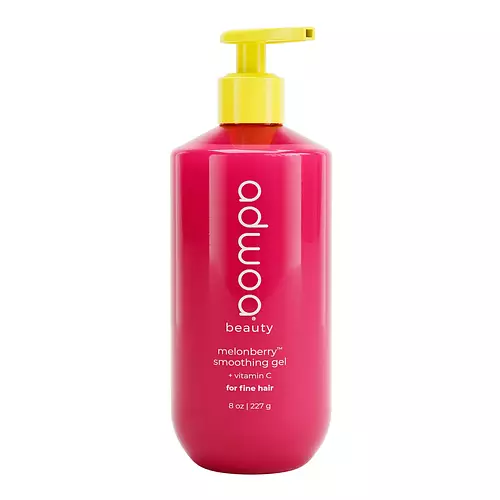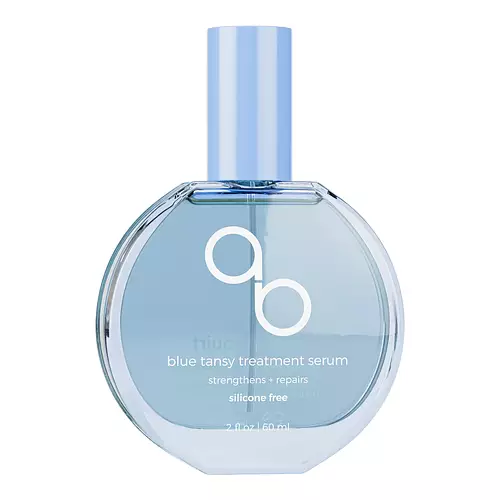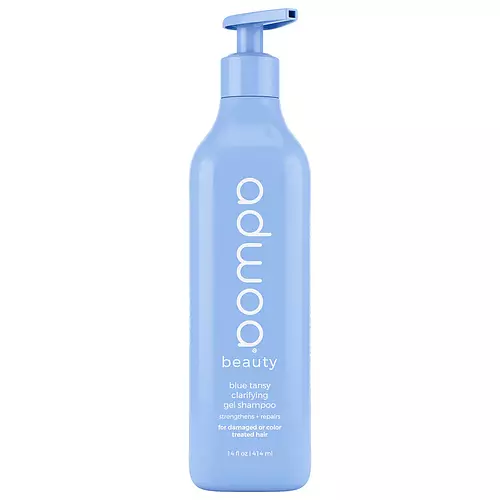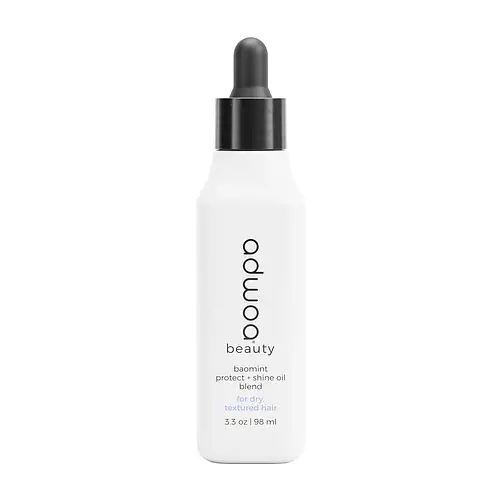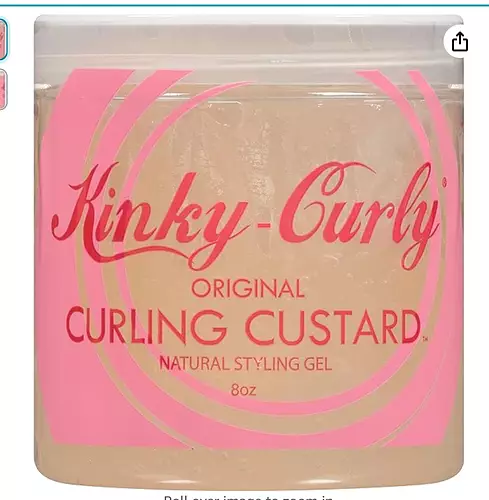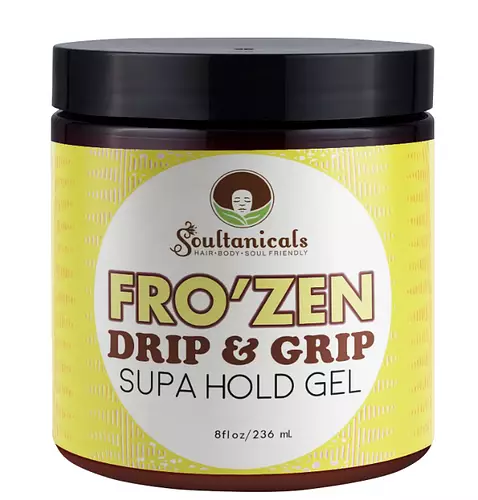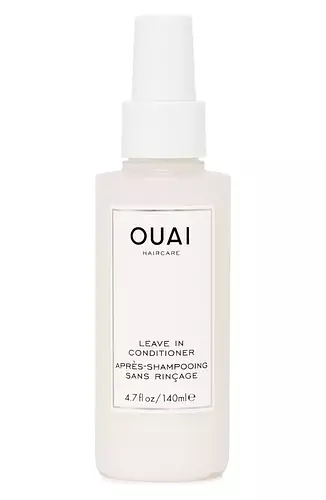Adwoa Beauty Baomint Moisturizing Curl Defining Gel Ingredients Explained
Updated on January 16, 2024 Submitted by weirdolei
Overview
What it is
Gel, pomade & wax with 22 ingredients
Cool Features
It is vegan and cruelty-free
Suited For
It has ingredients that are good for dry skin and brightening skin
Free From
It doesn't contain any parabens, silicones or sulfates
Fun facts
Adwoa Beauty is from United States.
We independently verify ingredients and our claims are backed by peer-reviewed research. Does this product need an update? Let us know.
Gel, pomade & wax with 22 ingredients
Quick info
You should know
Benefits
This product contains 2 ingredients that may have this attribute:
This product contains 1 ingredient that may have this attribute:
Concerns
This product contains 1 ingredient that may have this attribute:
This product contains 2 ingredients that may have this attribute:
This product contains 1 ingredient that may have this attribute:
This product contains 1 ingredient that may have this attribute:
This product contains 1 ingredient that may have this attribute:
Ingredients 22
Water. It's the most common cosmetic ingredient of all. You'll usually see it at the top of ingredient lists, meaning that it makes up the largest part of the product.
Glycerin is already naturally found in your skin. It helps moisturize and protect your skin.
Prunus Amygdalus Dulcis Oil comes from the sweet almond, a tree native to Iran. This oil has no fragrance and is non-volatile.
Adansonia Digitata Oil is an oil and isn't fungal acne safe.
Caprylic/Capric Triglyceride is an emollient, solvent, and texture enhancer. It is considered a skin-softener by helping the skin prevent moisture loss.
Butyrospermum Parkii Butter is a plant lipid from the fruit of the Shea Tree. It is an effective skin hydrator and emollient.
Opuntia Ficus-Indica Seed Oil is an oil and isn't fungal acne safe.
Cucurbita Pepo Seed oil comes from the field pumpkin, including winter squash and the traditional orange pumpkin we see in Autumn.
Xanthan gum is used as a stabilizer and thickener within cosmetic products. It helps give products a sticky, thick feeling - preventing them from being too runny.
Dehydroacetic Acid is fungicide and bactericide. It is used as a preservative in cosmetics. Preservatives help elongate the shelf life of a product.
Benzyl Alcohol is most commonly used as a preservative. It also has a subtle, sweet smell. Small amounts of Benzyl Alcohol is not irritating and safe to use in skincare products. Most Benzyl Alcohol is derived from fruits such as apricots.
Carbomer is a polymer of acrylic acid. Its main role is to create gel consistency within products.
Aminomethyl Propanol is used to adjust the pH of products. It is also used as a base to create other organic compounds. Having a balanced pH is important for protecting your skin.
Gaultheria Procumbens Leaf Oil is a fragrance and is an oil.
Mentha Piperita Oil is the volatile oil obtained from the whole plant of the Peppermint plant.
Rosmarinus Officinalis Leaf Oil is oil expressed from the leaves of the rosemary plant.
Water, Glycerin, Prunus Amygdalus Dulcis Oil, Adansonia Digitata Oil, Caprylic/Capric Triglyceride, Butyrospermum Parkii Butter, Opuntia Ficus-Indica Seed Oil, Cucurbita Pepo Seed Oil, Acrylates Copolymer, Polyquaternium-9, Nylon-11, Xanthan Gum, Dehydroacetic Acid, Benzyl Alcohol, Carbomer, Aminomethyl Propanol, Lavandula Spica Herb Oil, Gaultheria Procumbens Leaf Oil, Mentha Viridis Leaf Oil, Mentha Piperita Oil, Rosmarinus Officinalis Leaf Oil, Urtica Dioica Extract
Ingredient Ratings
Based on the number of likes and dislikes each ingredient has received.
Ingredients Explained
Water. It's the most common cosmetic ingredient of all. You'll usually see it at the top of ingredient lists, meaning that it makes up the largest part of the product.
So why is it so popular? Water most often acts as a solvent - this means that it helps dissolve other ingredients into the formulation.
You'll also recognize water as that liquid we all need to stay alive. Talk about multi-purpose! If you see this, drink a glass of water. Stay hydrated!
Learn more about WaterGlycerin is already naturally found in your skin. It helps moisturize and protect your skin.
A study from 2016 found glycerin to be more effective as a humectant than AHAs and hyaluronic acid.
As a humectant, it helps the skin stay hydrated by pulling moisture to your skin. The low molecular weight of glycerin allows it to pull moisture into the deeper layers of your skin.
Hydrated skin improves your skin barrier; Your skin barrier helps protect against irritants and bacteria.
Glycerin has also been found to have antimicrobial and antiviral properties. Due to these properties, glycerin is often used in wound and burn treatments.
In cosmetics, glycerin is usually derived from plants such as soybean or palm. However, it can also be sourced from animals, such as tallow or animal fat.
This ingredient is organic, colorless, odorless, and non-toxic.
Glycerin is the name for this ingredient in American English. British English uses Glycerol/Glycerine.
Learn more about GlycerinPrunus Amygdalus Dulcis Oil comes from the sweet almond, a tree native to Iran. This oil has no fragrance and is non-volatile.
Almonds contain healthy fats, vitamins, and minerals. It is a rich source of Vitamin E, a great antioxidant and skin conditioning ingredient. Sweet almond oil contains fatty acids such as linolenic acid and triglycerides.
The content of sweet almond oil makes it a great emollient; it can help soften and hydrate your skin. Emollients create a barrier over your skin to trap moisture in. Sweet almond oil has antioxidant properties. This may help with anti-aging, as antioxidants help fight free-radicals. Free-radicals are unstable molecules that may damage your skin's cells.
Those with an almond allergy should be careful of this ingredient and speak with a professional about using it in your skincare.
This ingredient may not be fungal-acne safe.
Learn more about Prunus Amygdalus Dulcis OilAdansonia Digitata Oil is an oil and isn't fungal acne safe.
Caprylic/Capric Triglyceride is an emollient, solvent, and texture enhancer. It is considered a skin-softener by helping the skin prevent moisture loss.
Within a product, Caprylic Triglyceride can thicken the product and make spreadability easier by dissolving clumping compounds. An added benefit of Caprylic Triglyceride is its antioxidant properties.
Caprylic Triglyceride is made by combining glycerin with coconut oil, forming a clear liquid. Caprylic Triglyceride has not been found to be toxic for human use in concentrations under 50%.
While there is an assumption Caprylic Triglyceride can clog pores due to it being derived from coconut oil, there is no research supporting this.
Learn more about Caprylic/Capric TriglycerideButyrospermum Parkii Butter is a plant lipid from the fruit of the Shea Tree. It is an effective skin hydrator and emollient.
Emollients help soothe and soften your skin. It does this by creating a protective film on your skin. This barrier helps trap moisture and keeps your skin hydrated. Emollients may be effective at treating dry or itchy skin.
Shea butter is rich in antioxidants. Antioxidants help fight free-radicals, or molecules that may harm the body. It is also full of fatty acids including stearic acid and linoleic acid. These acids help replenish the skin and keep skin moisturized.
While Shea Butter has an SPF rating of about 3-4, it is not a sunscreen replacement.
Shea butter may not be fungal acne safe. We recommend speaking with a professional if you have any concerns.
Learn more about Butyrospermum Parkii ButterOpuntia Ficus-Indica Seed Oil is an oil and isn't fungal acne safe.
Cucurbita Pepo Seed oil comes from the field pumpkin, including winter squash and the traditional orange pumpkin we see in Autumn.
Pumpkin seed oil is rich in vitamin E and plenty of fatty acids such as linoleic acids. Pumpkin seeds also have zinc and cartenoids.
Linoleic acid helps moisturize your skin as an emollient. Emollients act as a thin film to prevent moisture from escaping.
Cartenoids are an antioxidant. Antioxidants protect your skin against external damage. They also give pumpkins their classic orange color.
Fun fact: Pumpkins were first domesticated in Southern Mexico about 10,000 years ago.
Learn more about Cucurbita Pepo Seed OilAcrylates Copolymer is used as a film-forming agent and texture enhancer.
After applied, Acrylates Copolymer forms a thin film cover that helps skin feel more soft. It can help sunscreens become more water-resistant.
It is also used to make a product more thick.
Learn more about Acrylates CopolymerWe don't have a description for Polyquaternium-9.
Nylon-11 is not reef safe.
Xanthan gum is used as a stabilizer and thickener within cosmetic products. It helps give products a sticky, thick feeling - preventing them from being too runny.
On the technical side of things, xanthan gum is a polysaccharide - a combination consisting of multiple sugar molecules bonded together.
Xanthan gum is a pretty common and great ingredient. It is a natural, non-toxic, non-irritating ingredient that is also commonly used in food products.
Learn more about Xanthan GumDehydroacetic Acid is fungicide and bactericide. It is used as a preservative in cosmetics. Preservatives help elongate the shelf life of a product.
Dehydroacetic Acid is not soluble in water.
Benzyl Alcohol is most commonly used as a preservative. It also has a subtle, sweet smell. Small amounts of Benzyl Alcohol is not irritating and safe to use in skincare products. Most Benzyl Alcohol is derived from fruits such as apricots.
Benzyl Alcohol has both antibacterial and antioxidant properties. These properties help lengthen the shelf life of products. Benzyl Alcohol is a solvent and helps dissolve other ingredients. It can also improve the texture and spreadability.
Alcohol comes in many different forms. Different types of alcohol will have different effects on skin. This ingredient is an astringent alcohol.
Using high concentrations of these alcohols are drying on the skin. They may strip away your skin's natural oils and even damage your skin barrier. Astringent alcohols may also irritate skin.
Other types of astringent alcohols include:
According to the National Rosacea Society based in the US, you should be mindful of products with these alcohols in the top half of ingredients.
Any type of sanitizing product will have high amounts of alcohol to help kill bacteria and viruses.
Learn more about Benzyl AlcoholCarbomer is a polymer of acrylic acid. Its main role is to create gel consistency within products.
Carbomer is commonly found in many types of cosmetics products. It is found to be safe in concentrations up to 15%. However, a high amount of carbomer can cause pilling or balling up of products. Most products contain 1% of less of carbomer.
Aminomethyl Propanol is used to adjust the pH of products. It is also used as a base to create other organic compounds. Having a balanced pH is important for protecting your skin.
Aminomethyl propanol is safe to use in cosmetics up to 1%. It is soluble in water.
Lavandula Spica Herb Oil is a fragrance and is an oil.
Gaultheria Procumbens Leaf Oil is a fragrance and is an oil.
Mentha Viridis Leaf Oil is an oil.
Mentha Piperita Oil is the volatile oil obtained from the whole plant of the Peppermint plant.
It can be used to add a fresh scent to products.
Peppermint oil may cause skin sensitivity and redness due to its menthol content. Menthol also has a cooling effect (like your toothpaste).
Learn more about Mentha Piperita OilRosmarinus Officinalis Leaf Oil is oil expressed from the leaves of the rosemary plant.
Rosemary Leaf Oil is a fragrance and helps give your product a scent. If you are sensitive to irritating fragrances, this one contains camphor. Camphor has been found to irritate skin.
This oil also contains antioxidant and antimicrobial properties. As an antioxidant, it may protect you skin against damage. This can help slow down the signs of aging.
Learn more about Rosmarinus Officinalis Leaf OilWe don't have a description for Urtica Dioica Extract.
When to use
How this product is used by our community
Directions
rake our leave in conditioning styler with your fingers to prep for styling. make sure your hair is soaking wet and apply the baomint moisturizing curl defining gel to your hair in smaller sections...
rake our leave in conditioning styler with your fingers to prep for styling. make sure your hair is soaking wet and apply the baomint moisturizing curl defining gel to your hair in smaller sections for a more defined hold, and larger sections for less definition. continue to use a spray bottle as your work through your sections to spread product around evenly. allow your hair to air dry, diffuse, or sit under a hooded dryer. it is okay to use this product for twist-outs, braid-outs, roller sets etc. tip: do not use on dry or damp hair. if your hair is highly porous and dries out (fast) as you are styling, rewet sections for best results
More Adwoa Beauty Products
See all Adwoa Beauty productsMore Gel, Pomade & Wax
See all gel, pomade & waxWe're dedicated to providing you with the most up-to-date and science-backed ingredient info out there.
The data we've presented on this page has been verified by a member of the SkinSort Team.
Read more about us

